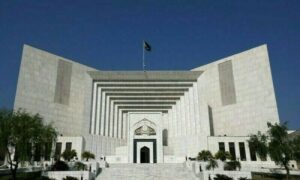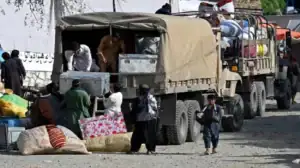In the governance and corruption diagnostic assessment report, the International Monetary Fund (IMF) and Pakistan have reached a consensus under which the Baggage and Gift schemes for importing cars will be abolished, while the Transfer of Residence scheme will be tightened.
Commercial imports of cars up to five years old will be permitted, but the conditions and safety requirements will be more stringent. The ongoing talks between Pakistan and the IMF are expected to conclude today (Wednesday). The matter will then be presented to the Economic Coordination Committee (ECC) and the Federal Cabinet for approval, a government official said.
According to the official, the IMF has issued a deadline for the implementation of these measures. Previously, vehicles from Japan or the United Kingdom were often shipped first to Dubai and then brought to Pakistan; such indirect imports will now be restricted.
READ MORE: Pakistani Banks Record Highest Total Returns Among APAC Banks in Q3
Civil Servants Act, 1973
Sources said that, in light of the IMF’s corruption assessment report, a task force has recommended amendments to the Civil Servants Act, 1973, requiring that the assets of government officers from Grade 17 to 22 and their families be made public. The task force has also proposed amendments to the Election Act, NAB Act, and FIA Act.
It further recommended training programs for NAB and FIA officers, the transfer of FIA investigation officers stationed at airports to other duties, and the launch of public awareness campaigns.
These negotiations are taking place following the completion of the second review under the $7 billion Extended Fund Facility (EFF). As a result, Pakistan is expected to receive the first tranche of $400 million under the Fiscal Sustainability Facility (FSF), part of the $1.4 billion support program.
The IMF has approved a deadline for ending the two schemes and instructed that the proposal to tighten the third scheme be presented to the ECC and Cabinet.









